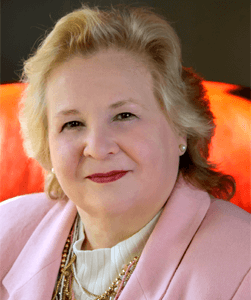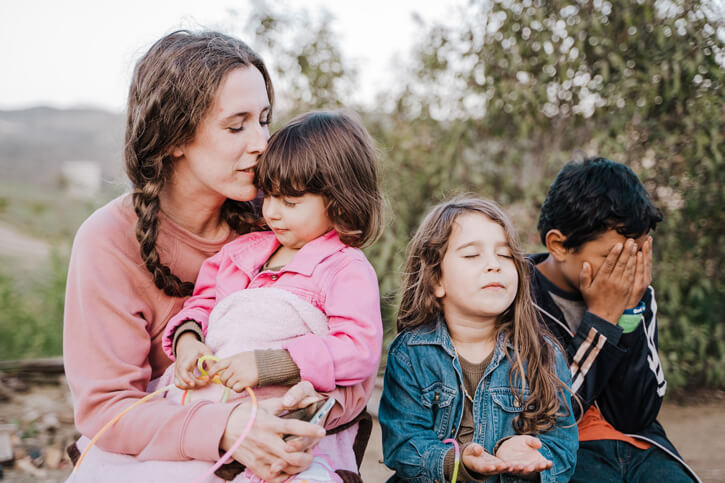May is National Foster Care Month, and a good time for me to answer a question I hear a lot, namely why anyone should become a foster parent.
Raising other people’s children is a challenging, often frustrating, task, but it also can be incredibly rewarding. Every foster parent has their own individual reasons for taking on the task, but there are some motivations that show up in almost every list. Here are the most common four reasons why someone should consider becoming a foster parent.
1. Make A Difference in a Child’s Life
The main reason to become a foster parent is to help children who need us. Children placed in foster care need a nurturing, stable, and safe environment, and we are the people who can provide that environment.
Of course, our foster kids may not want to be with us. They may reject our care for them, particularly if they have suffered trauma. That fact probably is the biggest challenge of being a foster parent, but it’s not a reason to not at least try to help these kids.
I don’t want to downplay the challenges of parenting children with trauma. When I first started, a common refrain I heard was that “these kids just need someone to love them.” That sentiment is admirable, but too simplistic. We do need to care about our kids, but love is not enough. Foster children by definition have suffered trauma, either in their biological families or by being separated from them. Helping them deal with that trauma requires a lot of information, training, and patience. It’s a long and arduous process that never goes in a straight line.
All that being said, not every child will reject us. Some relationships will be easier than others. Most importantly, if we don’t step up to try to help hurting kids, who else will do it?
2. Help Reunify Families
One often overlooked function of foster care is to try to reunify families. Our current foster system prioritized family reunification, and sometimes we can be an important part of that process. We can provide a safe place for the kids while their parents work on whatever problems disrupted their families.
It’s tough caring for kids that may leave us to return to their original home. Sometimes we can find a silver lining by establishing a good relationship with the biological parents as well as the foster kids. We have to go into foster care understanding that we may lose the kids from our custody at some point. Essentially, we are sacrificing ourselves to get our kids to the point that they want to be — in a solid relationship with biological parents.
We can’t fight against a child’s impulse to go back to biological family, and it’s damaging to try. Our best approach is to help our kids develop the best relationship with their parents that the courts and their safety will allow. It’s not easy helping a child strengthen a relationship with someone who is not us, but it is the only way to really help them with what they need.
All of foster care is sacrificial. Losing our kids from our custody is a particularly difficult sacrifice. We have to be willing to make that sacrifice, and know that we are doing what our kids need.
3. Create and Strengthen Relationships
Whatever time we have with our kids, we can establish good relationships. Strong relationships are no more certain with foster kids than they are with biological kids, but at least we have the opportunity.
We can’t force these relationships. It may take a while for our kids to establish a relationship with us, even if they want to be a part of our family. We have to learn to let each relationship grow organically and on its own time and schedule.
Learning to build relationships with kids who would rather have their biological parents in their lives can help strengthen our other relationships as well. I described in my book, Raising Other People’s Children, how the lessons my foster kids taught me proved to be invaluable when I married. I was able to avoid a lot of rookie mistakes with my stepsons and build strong relationships with them.
4. Be Transformed
The final reason to become a foster parent is that caring for other people’s children will transform you in positive ways which you cannot imagine. When I was a foster parent, I knew intellectually about the problems of at-risk kids, but I didn’t understand trauma on an emotional level. My kids taught ME more ABOUT empathy than I had ever had before, and I certainly learned more patience. My life developed a new richness and meaning that has stayed with me for life.
Being a foster parent was not easy. There were many painful times when my kids rejected me or took out on me their anger at the situations they were in. But I would not go back to the person I was before those kids came into my life. Nor can I imagine my life without the kids that I have developed strong relationships with.
Being a foster parent and stepparent has been the most challenging thing I’ve ever done, and the most rewarding. There are many reasons for people to become foster parents, but the main reasons are to help kids and their biological families. Along the way, we’ll discover strengths and experience joys that we never thought possible.
Find more on this topic and others like it on my blog. Don’t forget to check out my book Raising Other People’s Children: What Foster Parenting Taught Me About Bringing Together A Blended Family.

Debbie Ausburn is a social worker, foster parent, criminal prosecutor, and civil trial attorney. That background has given her unique insights into defending child care centers, camps, schools, and mentoring organizations. She has volunteered with and defended youth-serving organizations throughout the United States in matters as diverse as personal injury cases, intrusive government regulations, libel and slander issues, and claims of sexual abuse. Debbie is the author of Raising Other People’s Children. She also blogs about legal topics at youthserviceslaw.com, and parenting issues at otherpeopleschildren.org. She is based in Atlanta, GA.





